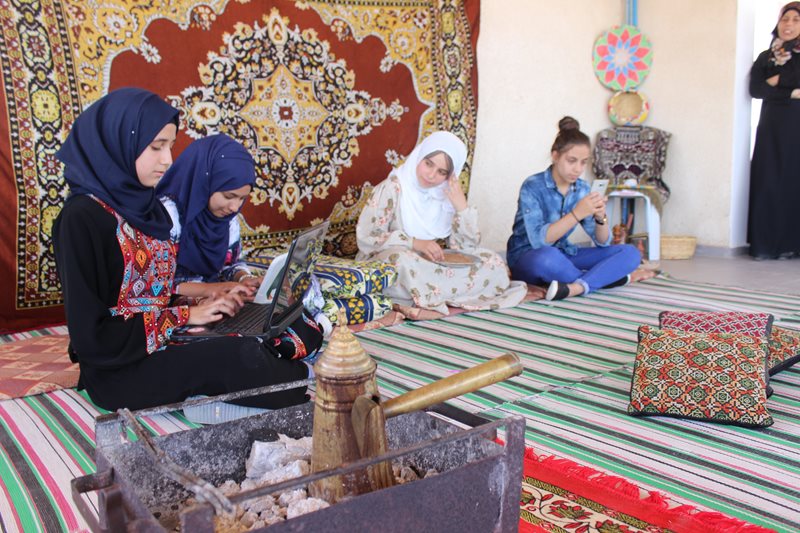Written by Nanor Arakelian; edited by Leanna Cappiello
IN THE BEGINNING
Meet Nancy: a strong-willed 15-year-old student at an all-girls’ school in the West Bank. Because of her tough exterior, Nancy’s behaviour was often intimidating to others and even bordered on bullying. Eventually, her aggression reached a new level. “I was forced to send her to the principal’s office [just] to be able to explain the lesson to the other 25 students,” says her mathematics teacher.
Something had to change.
PERSON OF INTEREST
Enter: Nahil, a dedicated teacher with extensive experience working with kids with behavioural issues and low academic achievement. She met many students in need, but few were as disruptive as Nancy.
ADD THE DRAMA
Around the same time, an after-school dramatic art program was starting at the school. The program—established with World Vision’s support—was designed to meet the needs of students like Nancy, so Nahil was eager to get her on board.
Nancy accepted Nahil’s offer to join the drama program, “I’ll be able to breeze through the afternoons in these classes,” Nancy thought.
When Nancy first joined, Nahil found it difficult to include Nancy in the activities. “I noticed that Nancy wasn’t taking the training seriously and wasn’t committed to attending all sessions.”
But Nahil was determined to keep Nancy involved.
CLIMAX
In a swift, bold move, Nahil assigned Nancy the lead role in the short play they were studying in class. She was also given the responsibility of organizing the rehearsals with the other cast members. Initially, Nancy’s reputation showed through and her peers were hesitant to work with her. But over time, she showed dedication—growing gentler and more caring toward others. Eventually, her classmates took notice.
“I was surprised to see a totally different person when I worked with her on the play. Nancy was a great team leader and she became one of my friends,” says one peer.
Nahil sat back and watched in amazement. “It was amazing to see the change in Nancy’s behaviour during the sessions,” she says.
 Drama program participants rehearsing for their short play where Nancy plays the lead role: a grandmother who is upset with her granddaughter because she is too consumed with her smartphone. Photo: World Vision
Drama program participants rehearsing for their short play where Nancy plays the lead role: a grandmother who is upset with her granddaughter because she is too consumed with her smartphone. Photo: World Vision
FAST FORWARD
The play was hit. Nancy gained the trust of her peers and organized rehearsals, even while memorizing her lines.
A few months later, when asked to reflect on her experience with World Vision’s drama program, Nancy had a lot to say. “I feel bad when I remember how I used to talk to my peers, my teachers and even my mother. I am lucky to have had Ms. Nahil, who encouraged me to be part of the drama program. I feel much better and I’m glad I am able to make friends now.” Nancy also said she became more aware of her body language and facial gestures in communicating her emotions, thanks to her stage work.
These skills served her well in her other classes. Her teachers agree that Nancy has shown more confidence, focus and interest in learning. She’s also getting higher grades, thanks to the caring relationships she developed within her drama community. Even Nancy’s mother noticed a difference in her behaviour at home. “She is more cooperative and cares for her younger siblings more,” she says. “I am grateful for the drama club initiative which helped bring out the good side of my daughter.”